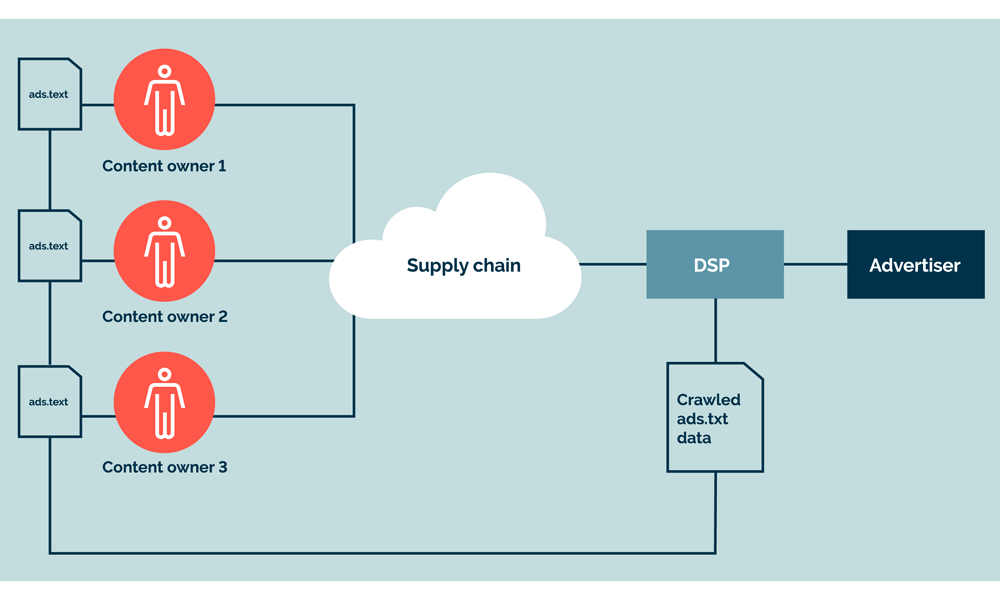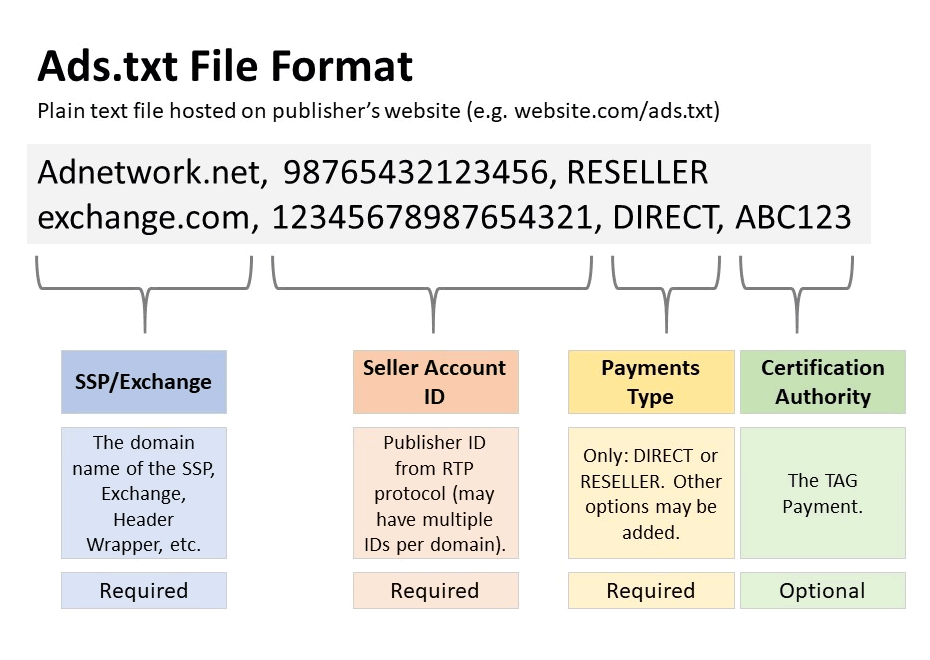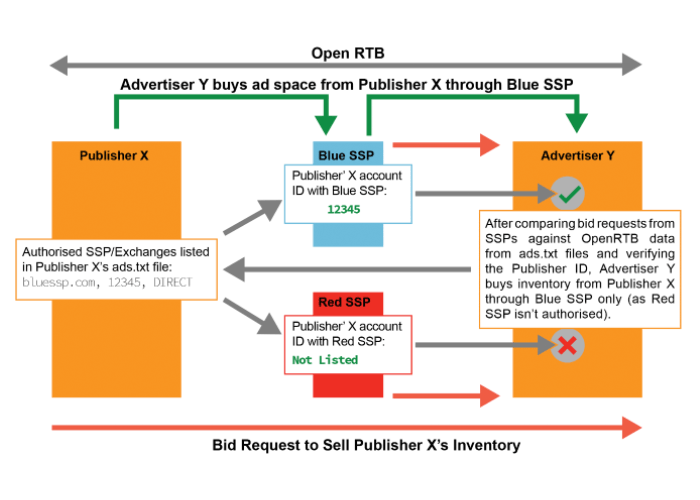The programmatic advertising industry is one of the things that powers the free information on the web. But unfortunately, the industry is just full of fraud.
While defining the exact number of loses due to ad fraud is difficult, publishers generally can lose a lot of money, with bigger publishers losing millions to billions of dollars a year because of this. And this is why the industry is bidding to bring more statistics to light.
Responding to the issue, organizations like the Interactive Advertising Bureau (IAB) initiated 'Authorized Digital Sellers', or known simply as ads.txt, to improve and implement standards for the good of the online advertising industry.
This text file can be hosted on a website, to list what companies are authorized to sell their products and services on that site.
Essentially, the file is designed to allow online buyers to check the validity of the sellers from whom they buy, for the purposes of internet fraud prevention.
This method is meant to battle bot traffic and other frauds that end up viewing and clicking on ads instead of real humans.

To implement this ads.txt on a website, is a simple procedure. Owner or the webmaster of a site should only create and upload the text file to their website properties, where they declare in front to the whole web which parties within the advertising industry are allowed to sell on their ad inventory.
Here are the steps:
- Gather all the necessary information from your site's accounts with resellers, network partners, and parties that make your ad inventory available to buyers. This includes the domain name of the advertising system, Publisher account ID’s, account relationship type’s (direct or reseller) and if available, the certification account ID for verified advertising systems.
- Create the text file in notepad or any other document editor software to the specifications set out by the IAB. Save and name the file
ads.txt. - Upload the file to the root of your website's domain (subdomains are not supported). The example would be https://www.eyerys.com/ads.txt.
When implemented properly, in the programmatic bidding process, the publisher ID is transmitted through OpenRTB protocols as the “SellerAccountID” along with the publisher’s domain and the list of authorized sellers.
Demand-side platforms (DSPs) which crawl the web for ads.txt files, will create a list of sellers authorized to handle inventory for specific publishers or domains. That list can then be used to create a filter that checks your ads.txt list with the data from OpenRBT bid requests.
Matching IDs signal that the exchange or SSP is a sanctioned seller for that publisher.

Fraud gives the online advertising industry a bad name. It decreases advertiser trust and ultimately affects everyone.
What’s great about this solution is the fact the publishers have full control.
This is because you as the web owner or webmaster, should be the only entities who have access to your domain and hosting root to upload the ads.txt file. And since the file is only a text file with a simple format, you can easily and quickly be updated to present any changes within your business.
The Interactive Advertising Bureau is aware of the fact that publisher not only market their ad inventory through one particular channel and the ads.txt file is design to support that. For good reasons, this is why ads.txt supports:
- Ad exchanges through personal accounts.
- .Ad networks who sell as programmatic partners.
- Content syndication partnerships.
Advantages And Disadvantages
Then comes the ultimate question: "will it help or hurt your website ad earnings?"
On the downside of ads.txt, you should properly create and implement the file to prevent the disadvantages. Because the file essentially tells the ecosystem who can sell to your ad inventory, if this file isn’t properly set up, your may end up blocking ad partners from being able to display ads on your site.
For example, if your site uses Google AdSense to display ads, and you accidentally entered a wrong Google Account ID, your site will start blocking AdSense from showing ads on your site.
And if your site uses multiple sources of demand, this can definitely hurt competition, even if one of the partner file is wrong.
Additionally, sellers update their list of verified partners on their ads.txt files all the time. What this means, if your site has an out-of-date partner file, it can be missing out on the advertising partners that one of its authorized sellers had made available.
In these instances, competition is potentially harmed by improper ads.txt management.
To prevent errors, you can use the many ads.txt management tools to help you out.
And for last, ads.txt clearly shows the partners your site is having, allowing anyone to easily see where else your inventory is available. People even have the relevant account IDs should they care to go comparing prices.

On the good side, all the information needed to create the ads.txt file isn’t hard to come by, since most systems already present the information with regards to the OpenRTB protocol. Implementing these practices from IAB provides transparency into who is selling what ad inventory and whether they are doing it legitimately.
This should increase advertisers' confidence to your website's ad inventory.
The reason is because buyers frequently can’t tell which parties are selling impressions in ad exchanges. Also, sometimes the URL delivered does not even accurately represent the party selling and delivering the impression.
The OpenRTB protocol already includes Publisher and URL ID’s, but no record exists that tells who owns particular publisher ID’s and how valid that information is.
With ads.txt, buyers will be able to determine who the Authorized Digital Sellers are for the publisher and confidently purchase media without doubting the inventories authenticity.
Second, this should benefit publishers that have been the victims of domain-spoofing. The ads.txt can prevent this from happening again, which could make the site in seeing more ad revenue as a result of reduced marketplace supply for their inventory.
What's more, Google which operates the largest online advertising on the web has opened up an option for advertisers to buy only from publishers with an ads.txt file.